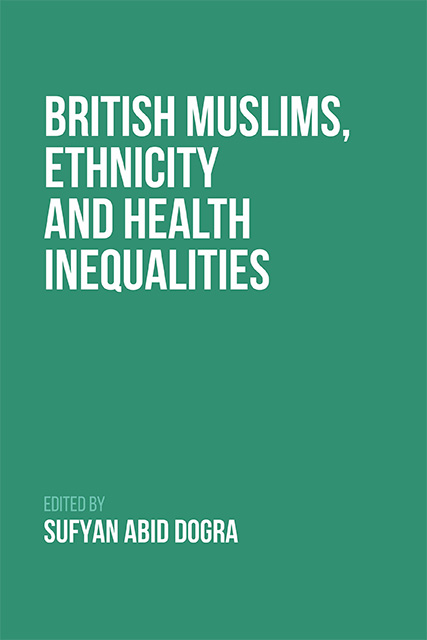4 - Relevance of Research Methodologies Used in Health Psychology for British Muslims: An Epistemological Critique on the Colonisation of Knowledge Production
Published online by Cambridge University Press: 18 October 2023
Summary
Introduction
It has been argued that in order to study Muslims, it is crucial to do so within an Islamic ontological framework (Azram 2011; Elmessiri 2013; Malik 2019; Grosfoguel 2013). There is a distinct lack of meaningful representative research on British Muslims’ experiences of health, and in particular health psychology, through a non-orientalised lens. From the outset of my academic journey, I have been concerned about how British Muslims in general and Muslim women specifically are researched and how Western literature reproduces certain dynamics of regressiveness and orientalisation, and the lack of meaningful growth and development in research with Muslim populations. Stonebanks (2008) highlights that there has been a failing in research when it comes to representing Muslims, asserting that ‘Muslim communities continue to be dehumanized’. This chapter draws upon my PhD research experience exploring the most appropriate fit of methodology and underlying philosophical inquiries when considering research with British Muslims. I share a broad overview of the considerations, challenges, dilemmas and topics I investigated and/or came across in the context of looking at Muslims’ experiences in healthcare of pregnancy and birth and the impact on mental health and intergenerational trauma, with a consideration of intersectional factors, which I did so under the umbrella of decolonising approaches.
Epistemicide
Understanding the role of epistemicide – the destruction of knowledge and knowledge systems, also referred to as intellectual genocide – is crucial. As Savransky (2017) states: ‘there is no social and cognitive justice without existential justice, no politics of knowledge without a politics of reality’. Throughout colonial and postcolonial history, dominant Eurocentric sociopolitical narratives have been pushed as superior and civilised above other forms of knowing, creating a disconnect and looking down upon indigenous or non-’mainstream’ ways of knowing. Additionally, such narratives seem particularly incapable of providing nuanced and multi-layered understandings of complex phenomena, such as intergenerational trauma experienced by British Muslims that has left a legacy on minds and bodies resulting in and from painful experiences (this topic itself would require an entire chapter).
It is important to recognise and understand the historical impact of colonisation, especially in thinking about implications on health and health services, and to consider the need to ‘decolonise’ how we look at health psychology especially for diaspora communities.
- Type
- Chapter
- Information
- British Muslims, Ethnicity and Health Inequalities , pp. 74 - 100Publisher: Edinburgh University PressPrint publication year: 2023

